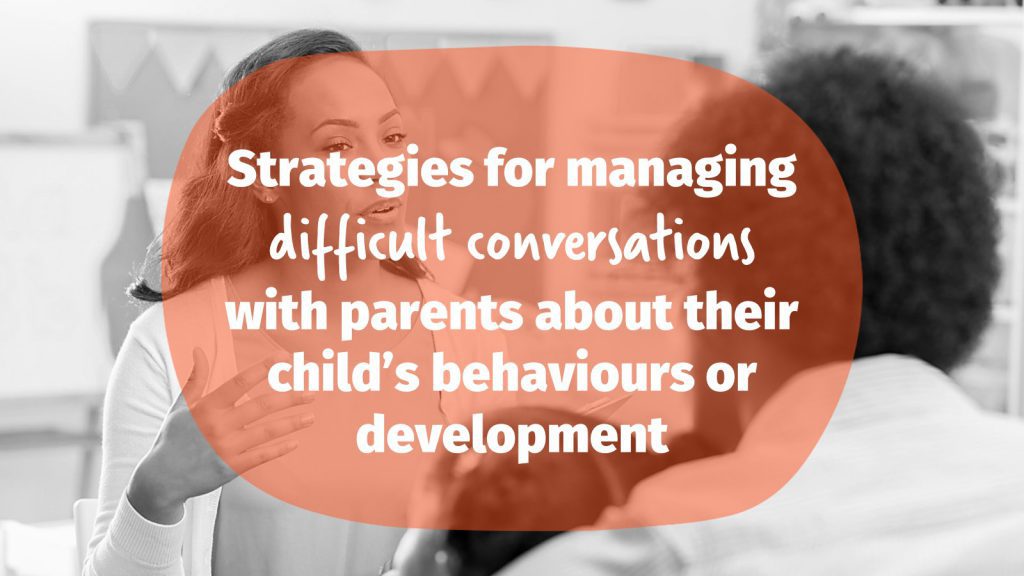
Educators support many children with behavioural difficulties and developmental concerns, and need to enlist the people in their child’s life to access the support they need. This means their role involves talking to the child’s parents about these concerns.
But most educators will tell you that communicating their concerns will not always get the result they would hope for and they can find it very stressful at times.
Some parents can get extremely anxious when they hear that there is ‘something wrong’.
Others may ignore the advice, leaving the child struggling to cope in a busy room where their developmental delays get in the way of their participation.
Educators will bravely raise their concerns about the child’s behaviour, but when the parent does nothing to support or engage with the situation, it can be extremely stressful for staff. They can be left feeling powerless and can lead to burnout if not managed proactively.
The uncertainty that some educators experience when approaching this with parents, is a reflection of the complexity of this task.
After all, no matter the parent’s level of involvement with the child day to day, they all are doing their best and hope for the best outcome for their child.
There are many parts that need to be in place and with some training and support, these conversations become easier and easier.
Here are some key points to get you started, and many more in the download.
Remember that you are advocating for a child who cannot advocate for themselves
It can be a lot easier to start these conversations when you hold in mind that you are giving the child a voice and helping them to access the support they need.
Take the pressure off
Remember that this doesn’t have to be ‘the conversation’ as this is often not a one off meeting that you have with the parent. It is more likely to be accepted by the parent, if this is a conversation that happens over time. This will allow you to build the relationship and their trust, as well as allow them time to understand what is happening.
Be specific
Give them specific examples of what you are seeing that concerns you, for example, ‘he is hitting the other children and hurting them, this occurs every 20 minutes or so’.
Be careful to stay within your scope of expertise
It is so important not to make any predictions or statements that you do not know to be accurate, for example, ‘he probably has autism’. Even querying a diagnosis is best done by experienced therapists who are skilled in this area and have appropriate contacts for referral.
This part of your caring role can be complex, and you can’t completely control the outcome. But there are many things you can do to increase the chances the child you care for, will receive the care they need. The download has many additional tips to support you. You are also welcome to share this with other educators who may also find it useful.
We also offer training for educators across a range of topics, some are available on the website, but please contact if you are interested in other areas for training.

